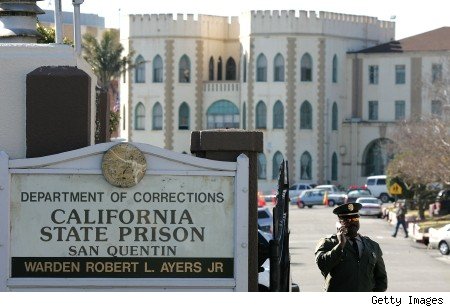 In the late 1980s and early 1990s, the death penalty became almost a third rail in politics, no one would dare criticize it. When they did, they got crucified for it as Michael Dukakis clumsily answered a question as to what he would do if his wife were brutality raped and killed.
In the late 1980s and early 1990s, the death penalty became almost a third rail in politics, no one would dare criticize it. When they did, they got crucified for it as Michael Dukakis clumsily answered a question as to what he would do if his wife were brutality raped and killed.
Given the landscape of two decades ago, it is remarkable that we now see a California legislator proposing a bill that would convert all current death sentences to life without parole.
On July 16, the LA Times ran an op-ed in which Patt Morrison interviewed Donald Heller. Donald Heller was a former US Attorney who wrote California’s Death Penalty.
He was also the author of “the Briggs initiative, a 1978 ballot measure (named for its sponsor, state Sen. John Briggs) that broadly expanded the kinds of murders eligible for capital punishment.”
But now Mr. Heller is a defense attorney and he has turned against the death penalty.
He was asked how he went from “writing Proposition 7, the Briggs initiative, which broadly expanded the categories of death-eligible crimes, to opposing the California death penalty.”
He responded, “When I wrote it, I believed in capital punishment. I thought I could write a comprehensive statutory scheme that would be effective and fair, and I did my job.”
He said, “I started thinking of some things that I never really thought about when I wrote it. One was the enormous toll it took on people involved. The human element — not [so much] the defendants but the people in the system.”
He said it took a toll on attorneys whose clients were sentenced to death and judges who pronounced death sentences.
He added, “I have a high regard for prosecutors — I could count on one hand the prosecutors I felt were unethical — but I saw the aggressiveness to get death. It became, with some, a game.”
Moreover he said, “I would see the quality of the court-appointed lawyers. Some were good, some mediocre, some less than mediocre. Defendants didn’t get what they were entitled to, and that’s why you [saw] quite a few reversals of verdicts in the Rose Bird court. That incensed the public. What the death penalty brought about [was] bad decisions and bad law.”
For Mr. Heller it was the 1998 Tommy Thompson execution that he felt was “a clear abuse of the death penalty law,” that turned him into an anti-death penalty advocate.
He wrote, “Thompson was convicted of special- circumstance murder and rape under the Briggs initiative. There were two defendants. Thompson was tried first. He was alleged to be the actual rapist-murderer. He was convicted of murder and sentenced to death in large measure due to the testimony of a professional jailhouse snitch.”
He continued, “In the co-defendant’s trial, the prosecutor switched theories. It was no longer Thompson as the rapist-murderer but the accomplice. While you can aid and abet to qualify for the death penalty, an accomplice must have the intent to kill to be death penalty eligible. The co-defendant accomplice was convicted of second-degree murder, but the prosecutor made no effort to notify Thompson’s trial judge that evidence now showed that Thompson was not the actual murderer. The trial judge has the authority to rectify an erroneous judgment.”
This issue was raised on habeas corpus, and ultimately the U.S. Supreme Court upheld the conviction on a technicality.
Mr. Heller said, “I felt this was wrong, that it violated the letter and spirit of the initiative, the fundamental law, the prosecutor’s obligation, and was an injustice. Gov. Wilson refused to commute his sentence. In 1998, Thompson was executed. I’ve been a vocal advocate in favor of abolition ever since.”
Mr. Heller also spoke of the relatively few executions under his initiative, with the average cost being about $330 million.
He wrote, “That cause[s] heads to turn. And right now, we see the cutbacks in education and public safety; police departments throughout the state [have] cut patrols, cut officers. One of the main purposes of government is public safety, and so in the pursuit of retribution and vengeance, we are pouring dollar after dollar into capital punishment with costs that I never could have envisioned in 1977.”
He added, “Life without parole serves the public-safety interests. It’s a lot cheaper, and you could even have special prisons for life-without-parole [prisoners]. You can serve the interests of the public and save a huge amount of money.”
LA Times columnist George Skelton has also jumped aboard, calling it, “Waste, fraud and abuse” and “a colossal waste of money for arguably the state’s most inefficient program.”
Wrote Mr. Skelton, “California has spent an estimated $4 billion to administer capital punishment over the past 33 years and executed only 13 people. That’s about $308 million per execution.”
“It’s a shameless fraud on the public. Californians have consistently supported the death penalty and been led to believe that it exists. It really doesn’t,” he adds.
It turns out Mr. Skelton is no anti-death penalty activist. He wrote, “You won’t find any arguments here about the death penalty being unfair, immoral or barbaric. I don’t buy it.”
He added, “Far as I’m concerned, these characters — once proven guilty beyond a shadow of doubt — should be immediately removed from our planet. Some creeps should be appropriately tortured first.”
Nice. But it also illustrates what has changed in our political system. It used to be a George Skelton, a center-left columnist, would be on the forefront of those arguing not only to preserve but expand the death penalty, make it more efficient.
The problem with those adherents is the difficulty of removing the “shadow of doubt.” The death penalty has not just been undone by our economic crisis, it has been undone by the weight of the problems in the legal system.
So George Skelton now can look beyond the merits of the death penalty because he no longer has a way to save it, to make it better.
No, it is about “inefficiencies and priorities. As we raise university tuitions out of sight, whack the poor and lay off cops, do we really want to be spending $308 million to snuff out one individual?”
He wrote, “What California has been doing for the past 33 years is insane: piling murderers into death row with little prospect of executing them.”
He cited a recent extensive study of California’s death penalty that cited the case of a white supremacist who killed a fellow gang member. The individual asked his attorney to get him sentenced to death, researchers reported, “because, as his attorney explained, ‘living conditions at San Quentin prison’s death row will be better than if he serves a life term at Pelican Bay.'”
The report added: “By any measure, it is beyond dispute that ‘the strongest, most effective death penalty law in the nation’ that was promised to California voters in 1978 has not been realized. Instead, California has the most expensive and least effective death penalty law in the nation.”
Mr. Skelton then went into the Alarcon/Mitchell report on the death penalty and the $184 million per year cost of it, over and above what it would cost to sentence those to life without parole. You can defend the policy, sort of, by understanding that that money will not fix the budget. “On the other hand, don’t we have a better use for $1 billion, every five years and increasing?”
Wrote Mr. Skelton, “Fully implementing California’s death penalty would cost an extra $85 million annually. Or, the state could reduce the number of eligible crimes and save perhaps $55 million. Third option: abolish the penalty completely and pocket about $1 billion over five or six years.
“Unless California voters want to tolerate the continued waste of billions of tax dollars on the state’s now-defunct death penalty system,” the report concludes, “they must either demand meaningful reforms…or, if they do not want to be taxed to fund the needed reforms, they must recognize that the only alternative is to abolish the death penalty and replace it with a sentence of life imprisonment without the possibility of parole.”
Mr. Skelton gets his shot in at Republicans, writing that they “used to be the crime-fighting party. Now they’re Johnny one-notes about lower taxes. So we can’t expect them to help raise money to resurrect capital punishment in California.”
“We don’t think you can put a price on justice,” says Cory Salzillo, legislative director for the California District Attorneys Assn. “If this is a penalty society wants — and every poll shows clearly that it is — there’s a responsibility to pay for it.”
It is not just George Skelton who has turned against the death penalty. It is happening all over the place with people that you would not expect, who have seen the system up close and recognize that it simply does not work as they thought it would.
And it cannot work properly without a good deal more money spent on it.
—David M. Greenwald reporting





David I hope you saw the remarks I wrote in response to your moderator claiming he didn’t see the blatant racism in Rifkins post and asking for clarification. I made a logical response copying one of two offensive remarks and my complaint was deleted by the moderator claiming I should contact him off blog as if I would ever do so. I know its laughable.
I then posted something a little more offensive because I am pissed that your blog allows Rifkin to post his bigoted racist remarks while threatening to delete or deleting the posts of those that take offense. If your moderator, as he claimed, can’t see the racism in Rifkin’s off topic posts about Jesse Jackson or is not up to the task of deleting them then he should be replaced by someone who will.
For far too long this blog has allowed Rifkin to post the most obvious and offensive racist rants without restraint and while I have over the years tried to respond directly to him he has shown no ability to control or reflect upon his own bigotry. As such, I am calling upon you to take action to insure that your blog is not a forum for his racist views. If you are going to allow censorship of the posts by those he offends with racist remarks you must then take responsibility for controlling his ability to post those remarks on the Vanguard.
DMG: [i]He was also the author of the “the Briggs initiative, a 1978 ballot measure (named for its sponsor, state Sen. John Briggs) that broadly expanded the kinds of murders eligible for capital punishment.”[/i]
There maybe an informational error, here. There was a Briggs Initiative in 1978, but it has commonly referred to something else:
[quote]California Proposition 6 was an initiative on the California State ballot on November 7, 1978, and was more commonly known as The Briggs Initiative. Sponsored by John Briggs, a conservative state legislator from Orange County, the failed initiative would have banned gays and lesbians, and possibly anyone who supported gay rights, from working in California’s public schools. The Briggs Initiative was the first failure in a movement that started with the successful campaign headed by Anita Bryant and her organization Save Our Children in Dade County, Florida to repeal a local gay rights ordinance.
[url]http://en.wikipedia.org/wiki/Briggs_Initiative[/url]
[/quote]
Interesting. I’ll have to look it up. Heller didn’t seem to dispute the name – perhaps there is more than one Briggs initiative?
I voted for the three strikes law and also supported the death penalty but since then I have changed my mind for various reasons. I would like to see the three strikes law revised or eliminated and I would like to see all of the death penalty sentences converted to life without parole with one caveat: That they not only serve life without parole but also in the Special Housing Unit (SHU) because some of the people are on death row are mass murders and should not be put into the main population. They are not above killing other inmates. Bivert is a prime example of that. Bivert was 17 years old when he and another person killed three people on the sacramento river in knights Landing all for the sake of stealing their car and joy riding. He was tried and sentenced as an adult. While in prison he became the leader of the white supremist group and targeted and killed another inmate. He has now been sentenced to death row. If his sentence is converted, there is no way this guy should ever be allowed to mix with other inmates. He is such a danger to everyone.
“Briggs Initiative”
DMG: [i]Interesting. I’ll have to look it up. Heller didn’t seem to dispute the name – perhaps there is more than one Briggs initiative?[/i]
I think it could be a Patt Morrison mistake. I think both initiatives ran in the same election, but I have never heard of the Briggs Initiative refer to anything but the proposed (failed) ban on homosexuals in schools.
Moreover he said, “I would see the quality of the court-appointed lawyers. Some were good, some mediocre, some less than mediocre. Defendants didn’t get what they were entitled to, and that’s why you [saw] quite a few reversals of verdicts in the Rose Bird court. That incensed the public. What the death penalty brought about [was] bad decisions and bad law.”
“He continued, “In the co-defendant’s trial, the prosecutor switched theories. It was no longer Thompson as the rapist-murderer but the accomplice. While you can aid and abet to qualify for the death penalty, an accomplice must have the intent to kill to be death penalty eligible. The co-defendant accomplice was convicted of second-degree murder, but the prosecutor made no effort to notify Thompson’s trial judge that evidence now showed that Thompson was not the actual murderer. The trial judge has the authority to rectify an erroneous judgment.””
Yes, it costs a lot to house death row inmates and that is probably the reason why the death penalty may change. The sad part is that people seem to care more about the finances of it all than the two statements above.
[quote]Mr. Skelton gets his shot in at Republicans, writing that they “used to be the crime-fighting party. Now they’re Johnny one-notes about lower taxes. So we can’t expect them to help raise money to resurrect capital punishment in California.”[/quote]
Now how do you legitimately “blame Republicans” for this one? Sigh…
Themis above makes a good point…
Two things about the death sentence, whenever it gets carried out: It eliminates the most knowledgeable witness to the actual innocence of the convicted person, and it stops any additional appeals that might be successful in overturning the conviction.
Both factors give the state unfair advantage over innocent people. On the other hand, both tend to help keep more tidy the story of justice in America.
For the many reasons already discussed repeatedly, the sooner we join the rest of the world on capital punishment, the better.